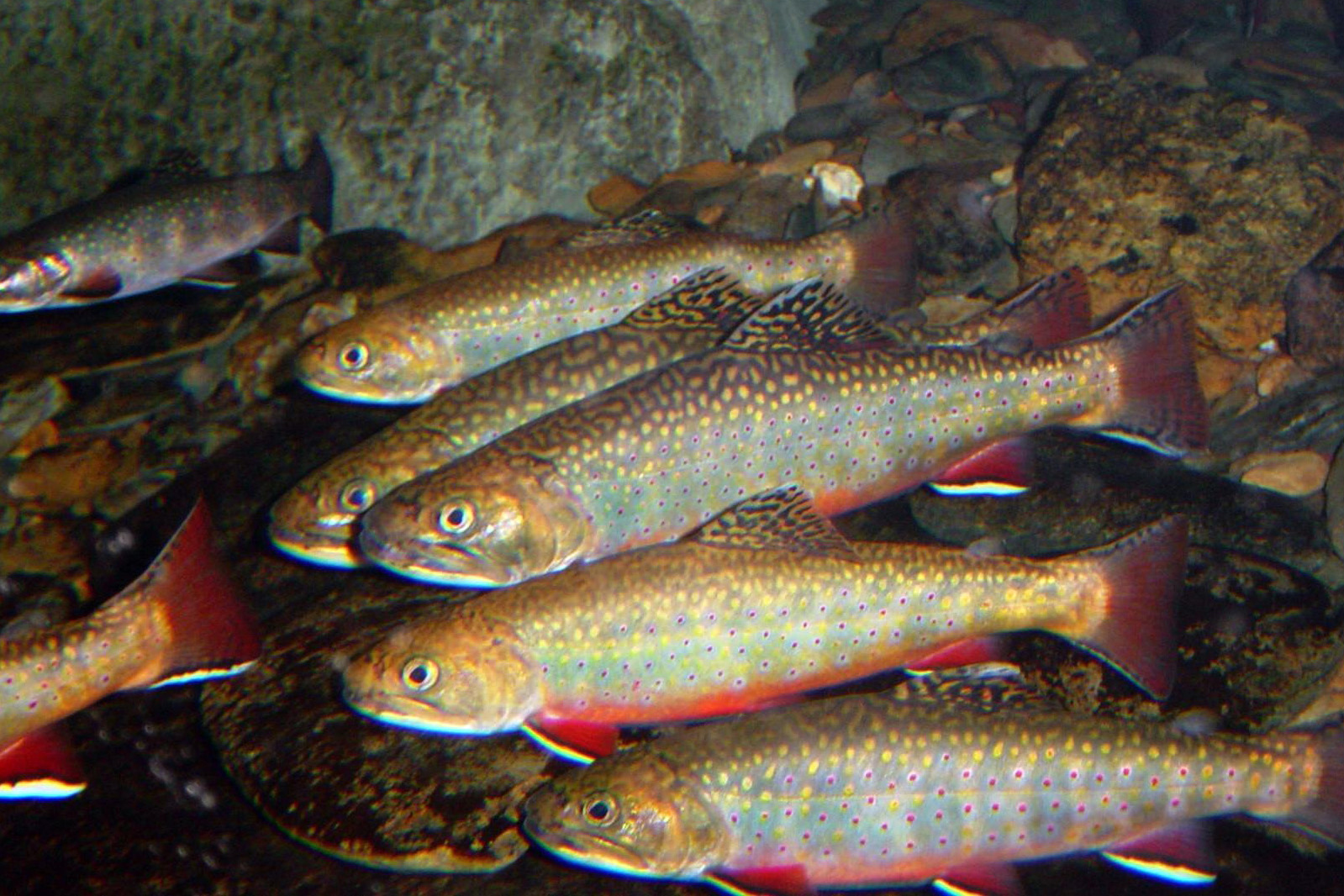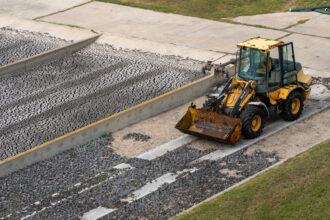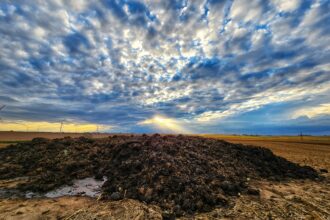ALLEGHANY COUNTY, N.C.—One of the most prominent cattle farmers in North Carolina has reached a financial settlement with the state Department of Environmental Quality over allegations that its grazing operations damaged more than three miles of mountain streams and prompted state wildlife officials to conduct an emergency rescue of a fragile species of brook trout from the waterways.
The Sept. 4 settlement with Bottomley Properties and related companies ends a protracted legal battle that, in part, hinged on a technicality over which DEQ employee was authorized to sign the civil penalty assessment.
It reduces the original civil penalty from $263,000—one of the largest ever assessed by DEQ—to $92,500, payable in installments over four years. It stipulates that neither side admits to violations or errors.
DEQ declined to comment on the settlement. An attorney for the Bottomley Properties did not respond to a request for comment.
A spokesperson for the conservation nonprofit group, Blue Ridge Trout Unlimited, in Winston-Salem, praised the settlement. “Bottomley raised very aggressive arguments in the litigation which, had they been successful, would have undermined DEQ’s ability to protect trout streams moving forward. Hopefully, the fine plus several years of litigation will encourage other actors to abide by our laws intended to protect trout populations.”
The Bottomley family farms more than 55,000 acres in the mountains of North Carolina and Virginia, where it raises 17,000 beef cattle, as well as pumpkins, watermelon, Christmas trees, kale and other produce.
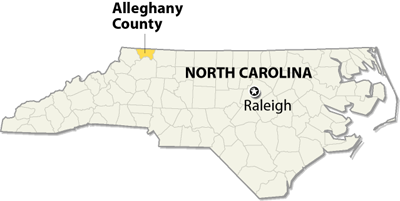
In June 2020, the farm began clear-cutting 360 acres of mountain forest to expand its cattle grazing operations. That October, inspectors with the state Division of Water Resources followed up on a complaint and found 1 to 3 inches of dirt in a stream that feeds Ramey Creek, which is classified as high-quality water for trout as well as a water supply for communities downstream.
DEQ recommends that farmers leave a 25-foot buffer of vegetation between fields and waterways to prevent sediment and waste from entering them. However, state law exempts agriculture and mining operations from buffer requirements; Bottomley cut right up to the stream banks, which eroded and sloughed into the waterways, the state found.
In addition, inspectors later found the cattle grazing operations had polluted a stream with high levels of fecal bacteria, more than six times the state freshwater standard, state records show.
Experts hired by Bottomley Properties testified that the bacteria could have originated from failing septic systems, but “provided no evidence,” according to court documents.
Bottomley Properties did not correct the earlier violations, according to state records, and the runoff continued. In June 2021, heavy rain dislodged sediment from the scoured hillsides and deposited dirt into five streams, at depths ranging from 3 inches to 2 feet, court records show.
The sediment also entered two wetlands, covering roughly three-quarters of an acre.
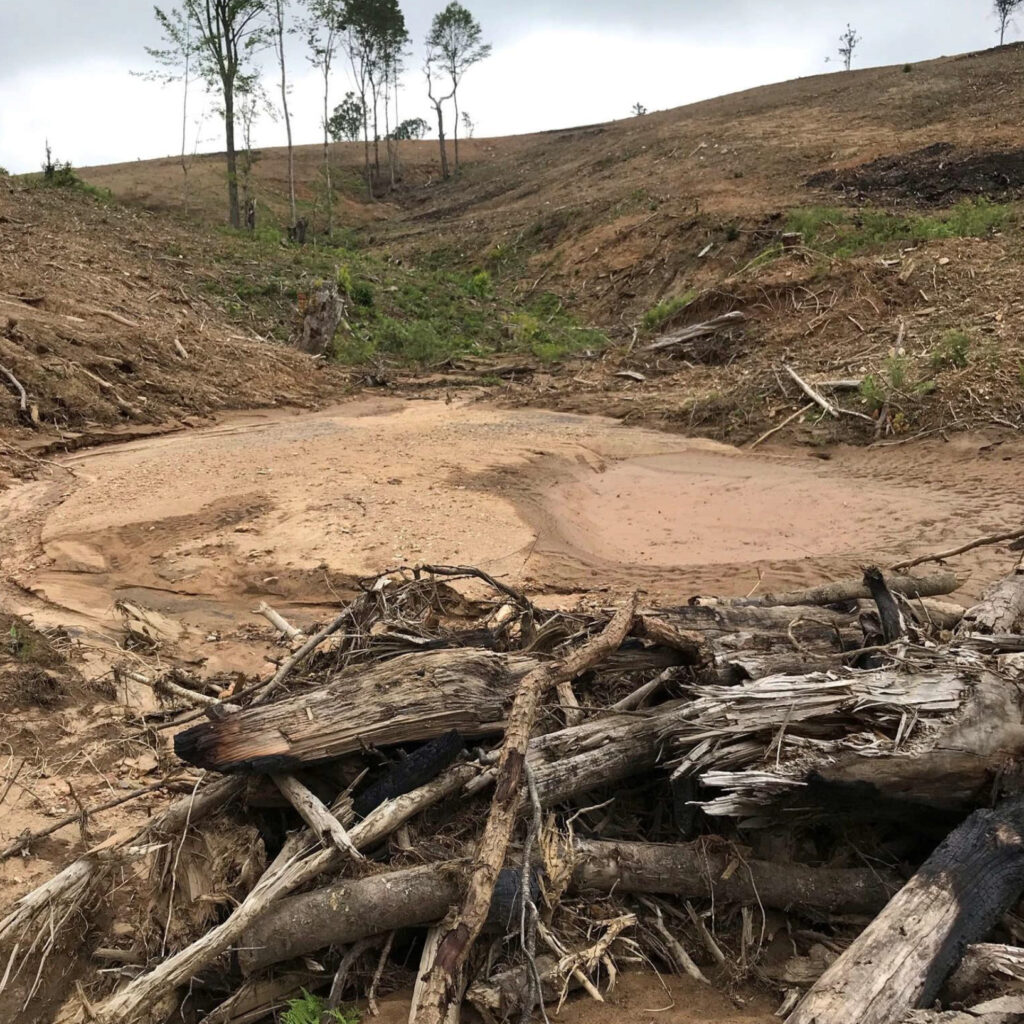
“The violations observed constituted some of the most extensive sedimentation damage to waters the Division of Water Resources staff involved in this matter have ever seen,” state documents read.
The damage violated the state’s “other waste standard” that prohibits sediment and other substances from impairing waterways.
Company official Mitchell Bottomley contended in his court filing that the sediment in this case was not “other waste” because he “values his soil.” A judge found the claim lacked merit.
The layers of dirt also threatened the habitat of a fragile species of fish, known as a brookie, or Southern Appalachian brook trout. Only about 6 inches long, they are too small to eat. They live only in the cold, clear headwaters of mountain streams. Studies have shown the fish are under stress due to rising temperatures caused by climate change.
Over just two weeks, before and after the heavy rain, state Wildlife Resources Commission (WRC) officials found the number of brookies in Ramey Creek had declined by two-thirds—a “worst case scenario,” court documents show.
WRC quickly collected as many brookies as possible and relocated them to a different mountain stream, where they survived.
However, over 18 months, the number of brookies in the stream near the clear-cut site decreased from 20 to zero, WRC officials testified.
At the time, an attorney for Bottomley Properties disputed many of the allegations, and later appealed the judgment in the state Office of Administrative Hearings. At the OAH, an administrative law judge hears civil disputes between a state agency and a person or business in a contested case hearing.
In court filings, the company’s attorneys wrote, ”the case is about misguided bureaucratic fervor directed at farmers and their lawful activities in order to produce unlawfully inflated penalties.”
They argued that state regulators acted “erroneously, and was arbitrary and capricious” in how they assessed many of the environmental damages.
In May 2023, Administrative Law Judge John Evans, a former DEQ chief deputy secretary under former Republican Gov. Pat McCrory, vacated the civil penalty assessment on the grounds that the wrong DEQ official signed the document. Evans did not rule on the merits of the allegations.
Four months later, DEQ reissued the penalty, which Bottomley attorneys again appealed to the OAH. The case went to trial, and Judge Evans reduced the penalty to $184,000. Both parties appealed the decision to a Superior Court. Earlier this year, the court sent the case to mediation, which resulted in the settlement.
Companies owned by the Bottomley family have a long history of environmental and labor violations. One enterprise, Glade Creek Dairy in Alleghany County, racked up dozens of state environmental citations and more than $15,000 in fines, according to DEQ records. From 2003 to 2016, Glade Creek Dairy was cited for overflowing manure pits, illegal application of the waste on land, discharges from barns into streams, and failures to pay annual permit fees.
About This Story
Perhaps you noticed: This story, like all the news we publish, is free to read. That’s because Inside Climate News is a 501c3 nonprofit organization. We do not charge a subscription fee, lock our news behind a paywall, or clutter our website with ads. We make our news on climate and the environment freely available to you and anyone who wants it.
That’s not all. We also share our news for free with scores of other media organizations around the country. Many of them can’t afford to do environmental journalism of their own. We’ve built bureaus from coast to coast to report local stories, collaborate with local newsrooms and co-publish articles so that this vital work is shared as widely as possible.
Two of us launched ICN in 2007. Six years later we earned a Pulitzer Prize for National Reporting, and now we run the oldest and largest dedicated climate newsroom in the nation. We tell the story in all its complexity. We hold polluters accountable. We expose environmental injustice. We debunk misinformation. We scrutinize solutions and inspire action.
Donations from readers like you fund every aspect of what we do. If you don’t already, will you support our ongoing work, our reporting on the biggest crisis facing our planet, and help us reach even more readers in more places?
Please take a moment to make a tax-deductible donation. Every one of them makes a difference.
Thank you,


